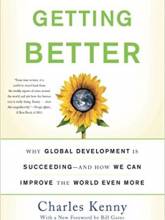Junkyard Planet: Global Recycling Industry
If you are wondering how the global recycling industry works, you might be as well willing to lead a more sustainable life. Those motives are clear and easy to understand.
However, it is important to do some research and gain some knowledge before you decide to contribute to the global recycling. Understanding the processes which take place inside the industry will give you the necessary information to make right decisions when dealing with waste and trash.
Start with some good read related to the subject, and you will get an idea of which direction to move next. One of the books which can give you the whole picture of the waste management industry was written by a Shanghai-based author Adam Minter. It is called “Junkyard Planet: Travels in the Billion-Dollar Trash Trade.”
The book is a truly eye-opening experience. It takes the reader on an amazing trip to the history of industry which ends up in its current state. It is an excellent source of information, which can help you form your own opinion on the recycling industry. Listen to the summary at Blinkist or Listen to the book at Audible.
Who will save the world?

Someone wise once said that the biggest threat to our planet is the belief that someone else will save it. That is so true.
When people say “Why me?” and don’t even try to make a smallest attempt to make a difference and change something in this world to make it better, it is really alarming.
If not you, who will? Who will take care of our world? Who will build our future?If you have an active life, good position and are leading a mindful life, you surely have asked yourself this question.
Read more: Get involved in social projects that make impacts
Global recycling is advertised everywhere, and it has been promoted in the last decade. So, as a mindful individual, you might wish to contribute to this cause. However, before committing yourself to it, study more about how it all works. The impact of the global recycling on the environment is enormous. The industry surely helps to save a lot, including the landfill space and natural resources.
However, you should not forget that it also has become a big business. The positive effects of recycling are really huge, and they can benefit lots of people, so it's no wonder.
A multi-billion-dollar industry

Do you know that the global recycling industry is a second largest employer in the world?
Just think about millions of people engaged in this business. It is really huge, but unfortunately, it is not only driven by the mere desire of people to save the planet. Recycling business is connected with big profit as well. Scrap dealers can make a lot of money because of the amount of waste we produce.
Most developed countries decided to dump their junk in developing countries instead of taking care themselves. For instance, the majority of waste from the US consumption is shipped to China , where it is recycled in specialized locations and facilities.
, where it is recycled in specialized locations and facilities.
Why are so many countries shipping their waste overseas, instead of dealing with it on its own territory?
First of all, it is much cheaper for a developed country just to get rid of its own waste and ship it away. Second, developing countries have much more human resources to make this labor-intensive process happen.
Why is particularly China the country with the largest recycling plants and facilities? Mostly because it was the cheapest way to fill all the otherwise empty freight ships that brought cheap goods in the first place. This alone made all other developing countries in areas, such as South Asia or Africa
or Africa , less competitive.
, less competitive.
Of course, there is also the dark side of the story. Let’s take a deeper look at the global recycling industry.
Recycling helps to save many resources, but what about the industry itself? What about those poisonous fumes the plants produce? There are also negative effects of recycling.
It is not a secret that these plants are causing a lot of environment and health issues. Think of all those workers that are exposed to toxic waste and poor working conditions. We cannot just ignore this. That is why it is crucial to recycle wisely and have the full understanding of how the industry works.
How to make the world better, cleaner and safer to live in?

Talking about dealing with trash and waste, we should admit that this is a conscious choice everyone makes every day. If you want to make this world a better place, free of litter and safe to live in, you should develop some habits which will help you have a more sustainable life.
- Reuse, rather than recycle.
- Be creative. Try to reuse the things you bought as many times as possible in a variety of ways.
- Reduce your consumption. Remember about the power of less. Before purchasing something think carefully if that is what you really need.
- Give preference to the products which are more easily recycled.
- Gain more knowledge about the global recycling and how the industry works.
Take all the above in the account, and you will surely be able to make a difference and start living a more mindful life. Remember the famous saying: the society is defined not only by what it creates but by what it refuses to destroy.















